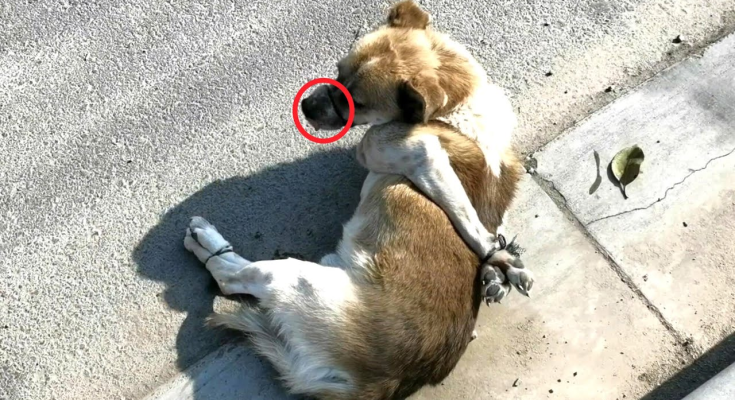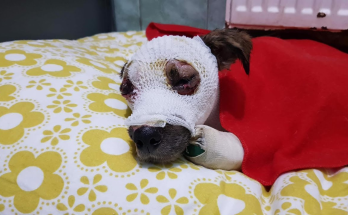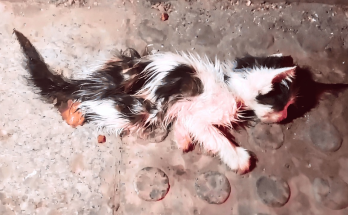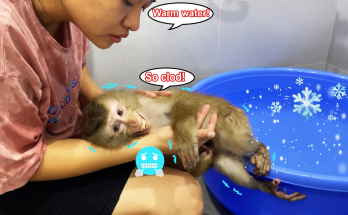He lay motionless on the cold, rusted floor of a meat cart, his limbs bound tightly with coarse rope that had already cut through fur and into tender skin. His mouth was sealed shut, preventing even a single whimper from escaping. The once-bright spark in his eyes flickered beneath layers of fear and exhaustion. He didn’t understand why he was there—only that every sound of the engine, every shout from outside, meant he was being taken further from life and closer to something unimaginable.
Around him, cramped metal walls reeked of blood and despair. The cart jolted along uneven roads, causing pain to shoot through his restrained legs. He wanted to cry out, to beg for mercy, to ask anyone to see him—not as cargo, but as a living soul. But his voice had been stolen, bound beneath tape and terror.
Suddenly, the truck lurched to a stop. Voices outside rose in anger. A confrontation. Hope, fragile as a thread, stirred within him. Moments later, the back doors were flung open, and daylight burst into the darkness. Animal rescuers stood there, eyes wide with horror at what they found. Their hands trembled as they approached him gently, whispering words he didn’t understand but could somehow feel—soft, kind, promising.
With careful hands, they cut his bindings. The rope fell away, leaving deep wounds. When they gently peeled the tape from his muzzle, he didn’t bark. He simply stared, tears gathering in his eyes, as if afraid it was only a dream.
They lifted him into their arms, not as meat, but as life. At the shelter, he received food, water, and treatment, though the deepest wounds were invisible—etched into his memory. Days passed, and slowly, he began to trust. He learned that hands could heal, not harm; that voices could comfort, not command.
One afternoon, he wagged his tail for the first time. It was small, uncertain—but it was a beginning. No longer silent, no longer bound, he had been given back his right to hope. From a cart of despair, he had found his way to love.




